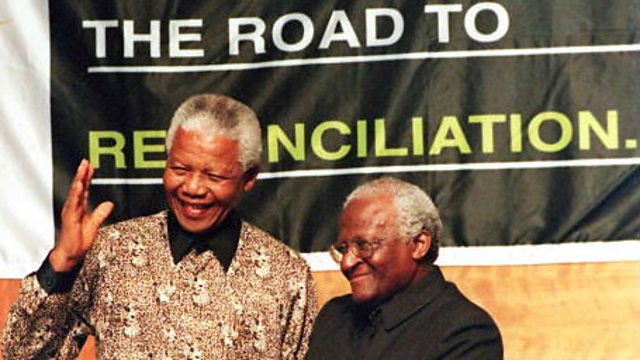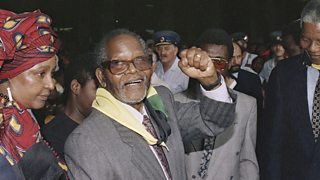South Africa's Truth And Reconciliation Commission
When Apartheid was abolished, South Africans had to find a way to confront their brutal past without endangering their chance for future peace. But it was a challenging process.
When Apartheid was abolished in the 1990's, South Africans had to find a way to confront their brutal past without endangering their chance for future peace. But it was a challenging process for many survivors of atrocities committed by the former racist regime. Justice Sisi Khampepe served on the Amnesty Committee of the Truth and Reconciliation Commission, and as she tells Rebecca Kesby, she had to put aside her own emotions and experiences at the hands of the police, to expose the truth about Apartheid.
(PHOTO: Pretoria South Africa: President Nelson Mandela (L) with Archbishop Desmond Tutu, acknowledges applause after he received a five volumes of Truth and Reconciliation Commission final report from Archbishop Tutu. Credit: Getty Images.)
Last on
More episodes
Broadcast
- Tue 16 Jan 2018 08:50GMTΒι¶ΉΤΌΕΔ World Service except News Internet
Featured in...
![]()
African history—Witness History
Listen to and download our programmes
Podcast
-
![]()
Witness History
History as told by the people who were there



